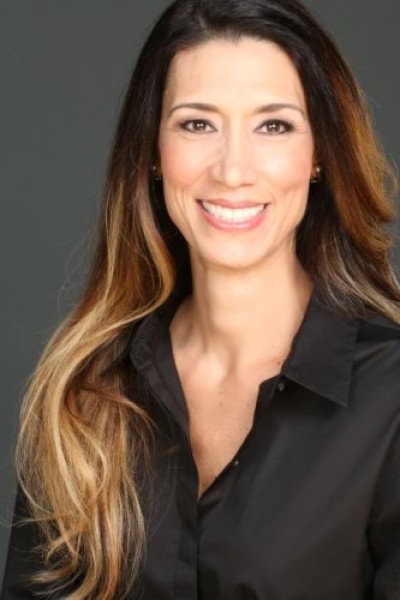Under Biden, the plight of persecuted Christians may worsen
President Biden’s recently confirmed UN Ambassador Linda Thomas-Greenfield is unlikely to use her diplomatic muscle to defend Christians against persecution.

If recent remarks by Ambassador Thomas-Greenfield are any indication of her position, the prospects are grim. At the U.N. General Assembly’s commemoration of the International Day for the Elimination of Racial Discrimination, she reprimanded China and Myanmar for committing genocide against their Muslim minorities and then turned to the issue of racism in the US. After a lengthy introduction about the “original sin” of slavery, she goes on to say, “the senseless killing of George Floyd, Breonna Taylor, and so many other Black Americans sparked …. a movement that spread across the world: Black Lives Matter. And because Black Lives Matter, we need to dismantle white supremacy at every turn.”[1] The persecution of Christians in the Middle East and their mass slaughter in countries across Africa were noticeably absent from her remarks.
Promoting religious freedom and thereby preventing persecution of minority religious groups abroad became a fundamental part of U.S. foreign policy through the International Religious Freedom Act, enacted into law in 1998. The law sets up an Ambassador-at-Large for International Religious Freedom along with an independent, bipartisan U.S. Commission on International Religious Freedom (USCIRF) that monitors freedom of religion and belief abroad and makes policy recommendations to the President, Secretary of State, and Congress.
Having worked in DC policy circles since the inception of the Commission in 1998, I participated in many roundtable discussions about religious freedom in Muslim majority countries, wrote research reports on the various causes of the problem, and traveled on behalf of the U.S. State Department to discuss these issues with local communities. Ironically, the U.S. policy focus was usually on the rights of radical Islamists to freely practice their religious beliefs rather than on expanding the protections of Christians. Even though I was a Muslim during this time, I was deeply troubled by this because it meant that Islamic extremists would gain prominence, which had the predictable result of increasing terrorism.
As a counter-terrorism expert, I advocated against this approach but was often told the U.S.'s focus on religious freedom as a democratic right meant the U.S. would defend beliefs it did not agree with, regardless of the national security implications. Under the Obama administration, the whole field of religious freedom took a back seat to LGBTQ issues[2] and the Ambassador-at-Large position remained vacant for more than two years. Then Under Secretary for Africa, Ambassador Thomas-Greenfield, even advocated for reduced funding to agencies in Uganda and Nigeria that discriminated against the LGBTQ community.
However, a noticeable shift occurred during the Trump administration. Former Secretary of State Mike Pompeo elevated the Office of International Religious Freedom to report directly to the Undersecretary for Civilian Security, Democracy, and Human Rights and the Ambassador-at-Large would report directly to the Secretary of State.[3] Commissioners testified repeatedly before Congress about the plight of Christians throughout Africa and the Middle East and advocated for stricter policies towards these nations.[4] Former U.N. Ambassador Nikki Haley often championed the cause of persecuted Christians in the Middle East and India during her visits abroad.[5] Arguably, the improving conditions of Christians in Egypt and Saudi Arabia can be attributed to the increased U.S. diplomatic pressure.
Without the U.S. leading the diplomatic efforts to defend minority Christian communities, the lives of these people are in grave danger. More than 340 million Christians face high levels of persecution and discrimination, while the number of Christians killed for their faith increased by over 60 percent since last year.[6] Moreover, if Thomas-Greenfield’s first official speech is a bellwether of things to come, Christian persecution may reach our own shores.
[1] https://usun.usmission.gov/remarks-by-ambassador-linda-thomas-greenfield-at-a-un-general-assembly-commemorative-meeting-for-intl-day-for-the-elimination-of-racial-discrimination/
[2] What Biden foreign policy picks mean for religious freedom
[3] International Religious Freedom Act of 1998
[4] Testimony by Nadine Maenza, Vice Chair United States Commission on International Religious Freedom Hearing on “Violations of International Right to Freedom of Religion: Christians"
[5] Nikki Haley to leave role as UN ambassador
[6] https://www.newsweek.com/when-will-world-respond-jihadi-violence-africa-opinion-1576237
Hedieh Mirahmadi was a devout Muslim for two decades working in the field of national security before she experienced the redemptive power of Jesus Christ and has a new passion for sharing the Gospel. She dedicates herself full-time to Resurrect Ministry, an online resource that harnesses the power of the Internet to make salvation through Christ available to people of all nations, and her daily podcast LivingFearlessDevotional.com.





























